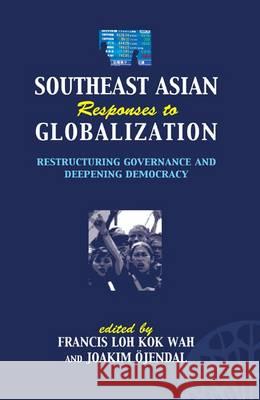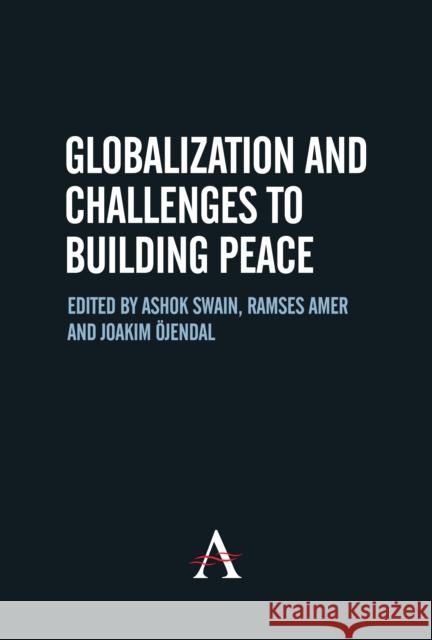Wyniki wyszukiwania:
wyszukanych pozycji: 2
 |
Southeast Asian Responses to Globalization: Restructuring Governance and Deepening Democracy
ISBN: 9788791114441 / Angielski / Miękka / 2006 / 382 str. Termin realizacji zamówienia: ok. 30 dni roboczych. This volume sets out to analyze changes in governance processes in Southeast Asia, particularly those relating to democratic development. The volume harbors an ambition to go beyond the often one-dimensional debate on democratization in Asia. With a historical perspective, and with an explicit attempt to view change from within, ten case studies from Southeast Asia are presented that illuminate how processes of governance are being altered under the pressure of accelerating globalization. These are accompanied by a review of how globalization has historically entered the debate on... This volume sets out to analyze changes in governance processes in Southeast Asia, particularly those relating to democratic development. The volum... |
cena:
184,21 |
 |
Globalization and Challenges to Building Peace
ISBN: 9781843312871 / Angielski / Twarda / 2007 / 284 str. Termin realizacji zamówienia: ok. 30 dni roboczych. The world has gone through a major transformation in the last two decades. The end of the Cold War in Europe has led to a massive increase in private capital flow and has also brought an information and telecommunication revolution. In this new interdependent and interconnected world, international trade and investment has overtaken the importance of national economies. Globalization has created new opportunities as well as many risks and challenges. While globalization creates new wealth and encourages technological innovations, it has also failed to support and promote sustainable human...
The world has gone through a major transformation in the last two decades. The end of the Cold War in Europe has led to a massive increase in private ...
|
cena:
358,68 |










